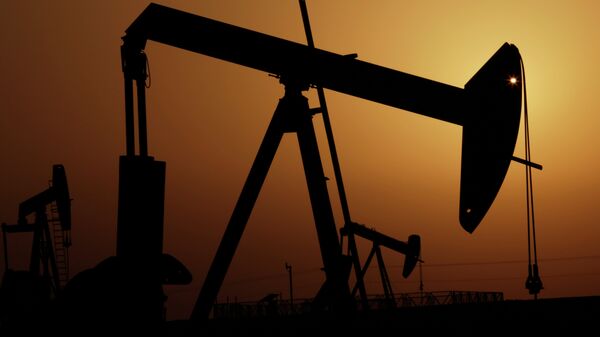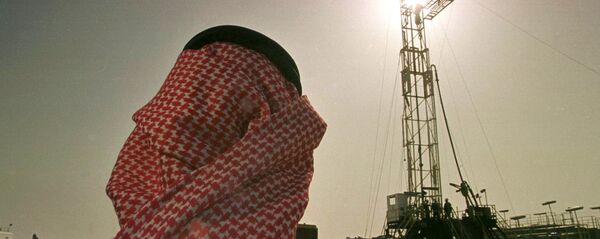REASONS FOR MAINTAINING OUTPUT
Even the current historic low oil prices allow the Organization of Petroleum Exporting Countries (OPEC) to make sufficient profits, Viren Doshi, the head of global oil and gas team at PwC’s Strategy, said.
"OPEC producers are probably unlikely to cut [production quotas], because on a variable cost basis they still make money… They all need cash. So let’s say if you cover your fixed costs working in basins, like the North Sea, Angola or Kazakhstan where the variable cost is 10 to 15 dollars, and the price is just 30 dollars, you still make 15 to 20 dollars cash contribution (recovery of fixed costs) — so why should they cut production?" Doshi wondered.
According to the analyst, only an explicit agreement among the OPEC members can prompt the cartel to reduce production, but it is hard to achieve in an organization that brings together such geopolitical adversaries as Saudi Arabia and Iran.
OIL PRICES GROWTH PROJECTIONS
Another oil market analyst, Dominic Haywood of Energy Aspects, predicts that such situation with oil prices will remain in place at least for the next few months, "but should pick up into the second half of 2016."
The reasons for the recovery at the end of 2016 will be "declines in non-OPEC production and continued strong light ends [the more volatile products of petroleum refining] demand," Haywood said.
Nevertheless, there have been signs recently of OPEC’s intentions to take some real steps.
On January 21, news of a possible OPEC extraordinary meeting in March emerged after remarks by Nigerian Petroleum Resources Minister Emmanuel Ibe Kachikwu at the World Economic Forum in Davos. The organization had previously agreed to hold a meeting in case prices fell below the $35 per barrel, according to the minister.
"I think if Russia contributes and joins at least in the meetings, without necessarily joining the OPEC, then they will be motivated to take that initiative. As Russia has a big role to play… So there is a good opportunity to make difference by joining OPEC discussions," Doshi said.
CHANCE TO SELL AS MUCH FOSSIL FUEL AS POSSIBLE
According to Doshi, major oil producers and exporters are also driven by the fear that oil will not stay the main source of energy for long, which is particularly topical after the recent climate change agreement achieved at the 21st UN Climate Change Conference (COP21) in Paris.
"There is now competition to take out as much as they can," he stressed.
"Right now in the Middle East many of our clients are thinking that may be fuel could be left in the ground forever. We call it ‘unburnable carbon.’ Unburnable means that market cannot support it. There is a fear that in 15-year time the world will stop using oil not because there is no oil, but simply because there are better technologies," he explained.
FIGHTING FOR CLIENTS
"It is an aggressive market, even if publicly they talk nicely. Middle East players are negotiating to sign term crude supply contracts with players in Poland, which are Russian customers. They are offering good discounts, to take that market share where ever they can… Europe is the main market for such a battle for share. So there is a bit of panic over volume," Doshi stressed.
In the first week of January, the United States sent its first two shipments of light crude oil after the 40-year oil export ban was officially lifted in December. At the time the ban was lifted, prices of West Texas Intermediate oil (WTI) nearly converged with Brent crude prices. That narrow spread has remained through January.
Iran has also started signing contracts after sanctions were lifted, and the country’s officials say Tehran is ready to double its oil exports within three months.
"US oil does not impact supply-demand balances at the moment because the arbitrage to export US to international markets is closed… Iranian oil will weigh on balances at a time where the world does not need more sour crude or condensate," Haywood said.
For the time being, it remains to be seen whether OPEC cartel indeed convenes at an emergency meeting in less than two months and manages to overcome geopolitical tensions and economic selfishness to help recover many currencies and economies around the world.




